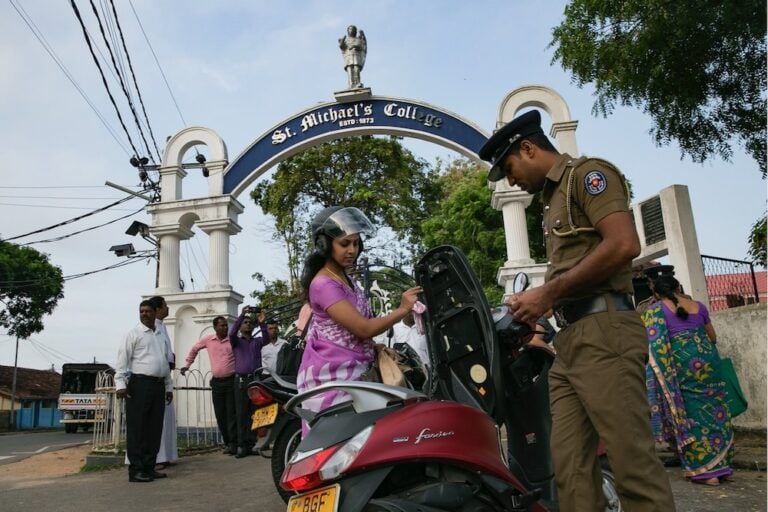(FMM/IFEX) – The following is a FMM press release: On the Declaration of a State of Emergency The Free Media Movement (FMM) notes with serious concern the imposition of a state of emergency in Sri Lanka. Sri Lanka has had the bitter experience for decades of being governed under states of emergency and the attendant […]
(FMM/IFEX) – The following is a FMM press release:
On the Declaration of a State of Emergency
The Free Media Movement (FMM) notes with serious concern the imposition of a state of emergency in Sri Lanka. Sri Lanka has had the bitter experience for decades of being governed under states of emergency and the attendant executive excesses and abuses of power.
The president imposed a state of emergency on 04th January 2005, one week after the tsunami, but it lapsed after 14 days as Parliament could not debate and pass it within the stipulated time period. Then the president imposed a state of emergency for a second time on 3rd February 2005 and it was debated and passed by Parliament on 14th February 2005.
While the FMM fully appreciates and supports the government’s desire to initiate programmes of reconstruction with regards to tsunami-affected areas and their populations, we question the need for emergency powers for this purpose more than a month after the disaster.
Exercise of emergency powers entails law-making – emergency regulations – by the executive which can override any other law, and which necessarily undermines Parliament. Moreover, in terms of the Constitution, the fundamental rights of the people, in particular freedom of speech and expression, including publication, and the freedoms of association, peaceful assembly and trade union rights, can be acutely restricted by emergency regulations. The experiences of the past, where free speech and other rights were curtailed through emergency regulations, require no retelling. Even more importantly, the culture of near-impunity that exists under states of emergency has been witnessed by Sri Lankans before.
The FMM is particularly concerned over the implications of emergency rule for freedom of speech in Sri Lanka. Freedom of speech is axiomatic in a democracy, not least in its facilitation of a vibrant and independent media. The media is a principal tool of accountability, and the real possibility of restraining its legitimate activities under emergency powers will have grave consequences for the future of democracy. In the shorter term, the transparency, accountability and public discussion around the national reconstruction will suffer if the media is unduly fettered.
The FMM therefore urges the government to revoke its declaration of a state of emergency with immediate effect and thereby remove the dark shadow of emergency powers that has been cast over fundamental rights and democracy in Sri Lanka.
Sunanda Deshapriya
Spokesperson
FMM


